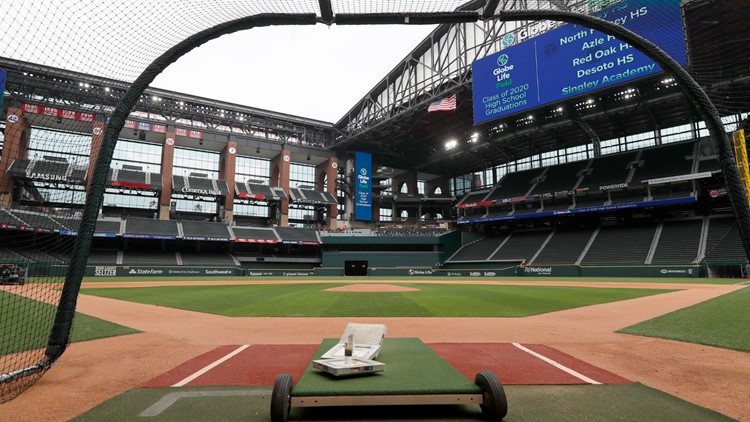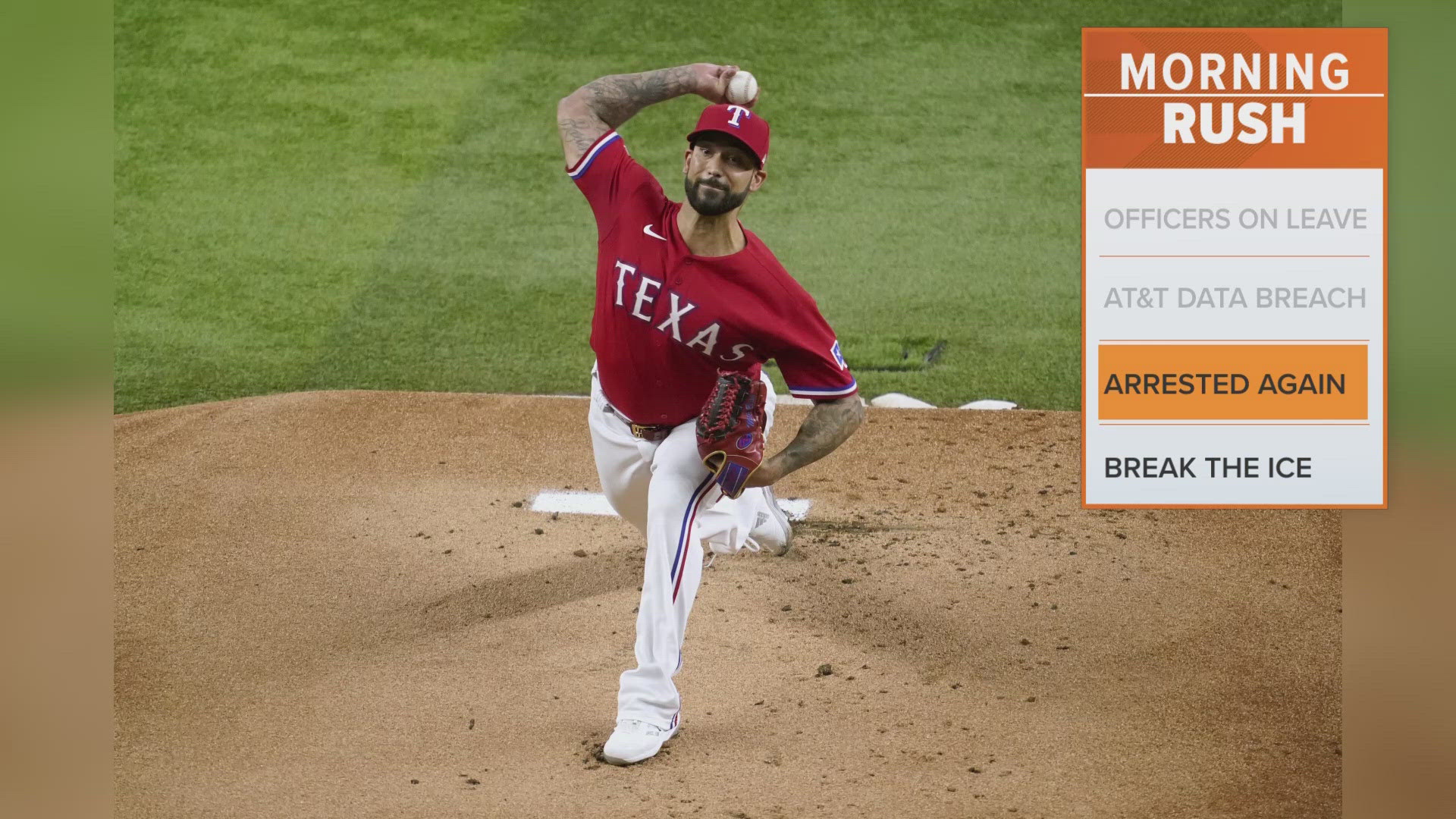DALLAS — With the announcement Tuesday that Major League Baseball will institute a shortened 60-game season, fans can finally say that baseball is expected to be back.
This won’t be the baseball any of us grew up watching, though. No, the abbreviated season will be the shortest that has occurred in a century. The old idea that the baseball season “is a marathon, not a sprint,” effectively gets thrown out the window with just over a third of a traditional season’s worth of games to be played.
This is going to be a full-on mad dash to the finish line.
Mike Ferrin of MLB Network Radio figured out that a five-game streak of either wins or losses, normally not a huge deal in a full season, is the equivalent of a 15-game streak in this shortened time.
The importance of games are more magnified, the strategy effectively becomes that of a very extended playoff and occurrences that would normally prompt patience in performance will now be scrutinized intensely, resulting in potentially rash decisions.
I, for one, can’t wait.
But what, then, constitutes a good shortened season on both sides of the ball? The high-water mark of possibilities for stats in a 162-game schedule is so ingrained in our baseball brains that it’s difficult to fathom what the best in the league will look like when the dust settles in the fall.
For example, it is highly improbable, if not impossible that we will see a 40-home run season from Joey Gallo. A 100-run season from Elvis Andrus is unreachable.
On the pitching side, your normal workhorse starter, such as Lance Lynn, is only going to register around twelve starts. Seventy appearances for an oft-used reliever? Try twenty-six.
The World Series champions of 2020 may not have an asterisk next to their title, as the team that employs and deploys the best strategy to get through this weird, weird stretch of baseball will have earned their “hunk of metal.”
But, especially when free agency and arbitration come into play, normally measured stats such as home runs, runs batted in, wins, losses, holds, saves and the like are going to have to be thought of in context of this anomaly.
On the hitting side, what would a stellar season look like?
Let’s take a look at Josh Hamilton’s 2010 year – a magical season that saw him win the MVP for the Texas Rangers. That season, Hamilton played in 133 games. His slash line, a metric that would be unaffected in a shortened season as they are still percentages based on parts of a whole, was .359/.411/.633. He walked 43 times and struck out an obscenely low 95 times. He slugged 32 homers and drove in an even 100 runs, with 186 total hits.
What would Joey Gallo’s 2020 have to look like if he were going to try to chase those numbers? It’s fine, I’ll do the math.
Gallo would only have to play in 49 games. But if he clocked 68 hits, drove in 37 runs, clubbed 11 home runs (ELEVEN), and struck out a mere 35 times while walking 16 times…well, that would be an MVP-caliber season. That would be over roughly 191 at-bats.
Of course, if Gallo’s doing that, then every Texas Ranger better be springing for a batting cage setup in their penthouse.
In 2019, the Rangers’ best pitchers were Mike Minor and Lance Lynn, with Minor barely edging out Lynn in every measurable stat. In 2020, Chris Woodward can deploy a bona fide, two-time Cy Young Award winner in Corey Kluber. It seems almost unfair that the fans of the Rangers will be deprived of seeing what this trio could do with a full season under their belts.
To see what a Cy Young season would look like for a Texas Ranger – a feat never before accomplished – we’ll take a look at Kluber’s 2014 Cy Young season (we’ll look at this instead of his 2017 season, as Kluber started the maximum number of games in 2014).
In that 2014 season for Cleveland, Kluber started every game asked of him – 34. He pitched in 235.2 innings, gave up 207 hits, allowed 64 earned runs, walked 51 and struck out 269. His ERA came in at 2.44. In a 60-game season, Kluber, returning from a severely shortened 2019 in his own right, would only have to recapture the magic for a third of a regular docket.
To replicate one of his best seasons on a smaller scale, the 34-year old Coppell High School graduate would have to start 13 games.
In that time, he’d have to throw just about 90 innings and give up 79 hits and surrender 24 earned runs. To maintain a strikeout-to-walk ratio of just over 5, Kluber would need to strike out 102 and walk just 19. His win-loss record – not factoring in at all what his offense does or doesn’t do this season – would be 7-3.
All of this to say, the hard numbers aren’t going to mean much. No, a 7-3 record and 90 innings pitched doesn’t look incredible at first glance. A 68-hit, 11-home run season sounds like nothing. In the context of the absolute nuttiness that is going to be the COVID-shortened 2020 Major League Baseball season, these are numbers you can look for to be “elite.”
Will the Rangers have any league leaders when the dust clears on the 60-game slate? Share your predictions with Matt on Twitter @FisherWritesMLB.



